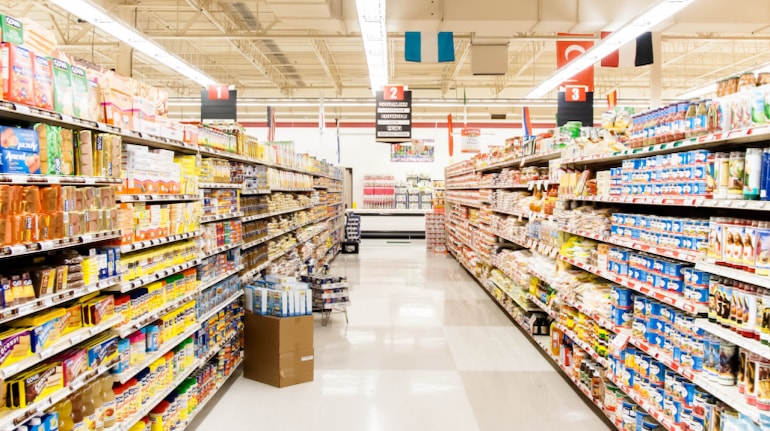



It’s festive cheer for consumers. Hindustan Unilever and Godrej Consumer Products have cut prices of some soap brands by up to 15 percent after palm oil and other raw material costs cooled off.
Hindustan Unilever reduced prices of Lifebuoy and Lux soaps by 5 to 11 percent in the western region. Godrej Consumer, which owns soap brand Godrej No 1, lowered prices by 13 to 15 percent.
“With commodity prices coming down, Godrej Consumer is one of the first FMCG companies to pass on the price reduction benefit,” CFO Sameer Shah said.
Most analysts said price cuts are in the offing because raw material costs have come down from the highs reached after the outbreak of the Ukraine-Russia war in February. The price of palm oil, a key raw material in making soaps, has dropped almost 60 percent from its 52-week high in March.
However, some analysts found the product price cuts to be unusual. Typically, companies are quick to pass on input cost inflation. The prices of several daily-use products climbed during the fourth quarter of FY22 and the first quarter of FY23 as commodity costs soared.
Also Read: FMCG Q2 Preview | Price hikes to drive revenue growth but volumes to remain under pressure
“FMCG firms do not cut prices this soon. However, given the severe distress in the consumer basket, as we have seen from Godrej Consumer and Marico’s Q2 updates, companies know that if they do not pass on cost reductions, volumes are not going to come back,” Sandip Sabharwal, an independent market advisor, told ET NOW TV channel.
In its Q2 update, Marico said its India business will see low single-digit volume growth. Godrej Consumer has predicted a mid-single-digit drop in volumes.
Rural demand has been sluggish for some time.
“FMCG companies have been very eager to bring in demand, especially from the rural front, which is why we could see them reacting quickly to the raw material price cool-off,” Sonam Srivastava, smallcase manager and founder of Wright Research, told Moneycontrol. “Sales in rural India fell 14.3 percent while urban sales growth stood at 1.1 percent in September as compared to the previous month.”
Sellers were cautious about stocking in rural areas. Kirana owners restocked only after clearing out the inventory built up over the previous month. Adding to the woes, a rain deficit in some parts suggested slower recovery in demand.
While the monsoon was above its long-term average overall, the east and northeast/northwest parts of India received less than average rainfall, suggesting that rural recovery in these regions may be delayed, according to Motilal Oswal.
Marico’s management, in its Q2 update, said downtrading – when consumers switch to low unit packs or lower-end brands – was still prevalent in rural areas. Dabur said there is some pressure in terms of liquidity in the rural markets.
Also Read: Rural FMCG sales decline in run-up to festivals, data shows
Hindustan Unilever’s price cut is a proactive step to retain/protect market share, according to Nuvama Research (earlier known as Edelweiss).
“When raw material prices fall, regional players tend to come back in terms of promotion and ad-spends. Thus, HUL had to reverse the trend from price hikes to price cuts. The entire industry may follow suit soon,” according to Abneesh Roy of Nuvama Wealth Management.
“General food and fuel inflation is hitting the population that earns Rs 25,000-30,000 per month,” said Shirish Pardeshi, a senior analyst at Centrum Broking who earlier worked with Colgate Palmolive. “So if you don’t cut prices, you might lose the customer. In FMCG parlance, stickiness for branded FMCG is very high. But once you lose the customer, it is difficult to get them back."
Hindustan Unilever shares have gained about 9 percent so far this year, while Godrej Consumer shares have lost over 12 percent in this period.
Volumes and marginsAnalysts said the price cuts were needed to drive volume growth. After reducing pack sizes in earlier quarters, companies are now facing low volume growth.
With palm oil and crude oil prices edging lower from their peak levels, there is room to pass on the benefits to consumers, gain volumes and recoup margins, according to Nuvama Research.
However, Pardeshi said that while the price cuts can lead to volume growth, margins will remain under pressure.
“FMCG companies procure raw material for 75-80 days. If it is coming from outside India, then it might be 100 days,” he said, explaining how margins will be affected in Q2 due to high-cost inventory.
He said companies expect higher offtake in H2 (that is Q3FY23 and Q4FY23), when several festivals and holidays are lined up.
“This means firms will spend more on advertising and promotions, and this could put margins under pressure,” Pardeshi said.
Disclaimer: The views and investment tips expressed by investment experts on Moneycontrol.com are their own and not those of the website or its management. Moneycontrol.com advises users to check with certified experts before taking any investment decisions.Discover the latest Business News, Sensex, and Nifty updates. Obtain Personal Finance insights, tax queries, and expert opinions on Moneycontrol or download the Moneycontrol App to stay updated!
Find the best of Al News in one place, specially curated for you every weekend.
Stay on top of the latest tech trends and biggest startup news.